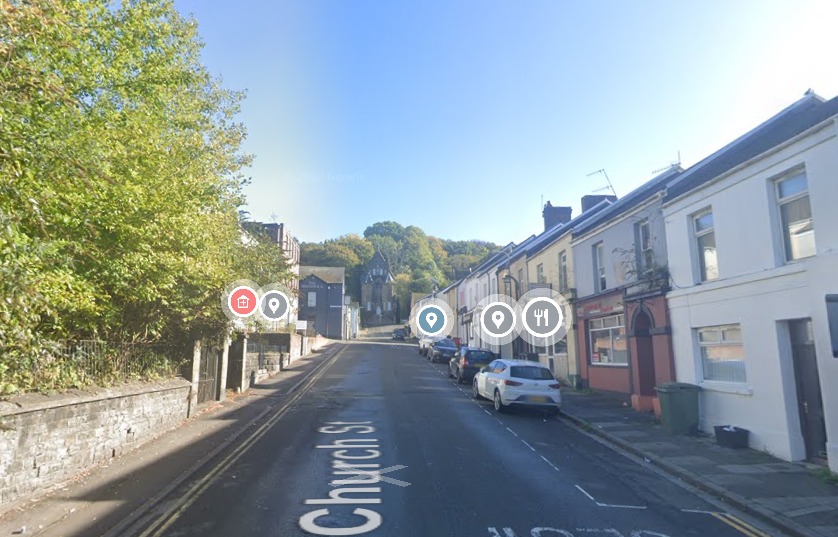PLANS to turn offices into a house in multiple occupation (HMO) in Merthyr Tydfil town centre have been approved despite some concerns.
The application for 1 Church Street for a change of use from offices to a HMO for up to six people was approved by the council’s planning committee on Wednesday, February 28.
The plan is for six bedrooms with shared kitchen, living room, showers rooms and toilet, as well as a cycle store.
The plans show the basement and attic rooms would remain locked and inaccessible to residents but there would be some outer changes to the building.
The application site includes an empty, end of terrace property within the settlement boundary, within the town centre boundary and Thomastown conservation area.
It is also in close proximity to a number of listed structures with a road to the front and a gated lane to the rear.
Councillor Andrew Barry had requested the application be reported to committee to consider the points raised within the objections received.
Two letters of objection were received following the public consultation, which said there were already HMOs in the area and other forms of social housing.
They said the site is in a conservation area which was in decline because of existing problems in relation to drug use, and there was concern about the impact on property values.
The objectors said parking in designated areas for those with resident permits is already at full capacity and the property is in close proximity to a dance school for children who “may be put at risk”.
Councillor John Thomas, committee member and Town ward member, said the police are in attendance every other day for issues that are going on in the area and he said Councillor Andrew Barry sent an email to the planning department explaining the local members’ concerns.
He also said with the synagogue due for refurbishment and renovation, the number of tourists that will come through this area could be in the thousands and this could be an intimidating area so he said he would vote against the recommendations to approve.
But planning officers recommended approval, saying it was not considered the introduction of an additional small-scale HMO such as this would lead to an over-concentration that would cause such significant harm to the character of the area as to warrant the refusal of planning permission.
They also said it was not considered the lack of parking would give rise to significant highway safety concern, adding it was in a highly sustainable location close to local services and facilities where the use of more sustainable modes of transport could be encouraged.
It was not considered the proposal would be significantly different to the existing use, according to the officers, with no additional overlooking from first floor windows and any noise and disturbance would not be significantly greater than a potential office use and would be similar to that expected from a three or four-bedroom house.
Officers said the responsibility for dealing with anti-social behaviour is shared between a number of agencies, particularly the police, local authorities through public health and protection and social landlords.
They said: “Whilst it is recognised that there are other HMO properties in the area, it is not considered that their numbers are excessive or in such a high concentration that they are resulting in a breakdown of the character or community of this area.
“Similarly, whilst there may be an existing problem with crime and anti-social behaviour, this cannot be attributed solely to the existing HMOs and is likely to be a combination of a number of complex factors.
“In addition, South Wales Police have not raised any concerns with respect to the approval of a HMO at this property or highlighted any issues with crime levels in its vicinity.
“Whilst it is acknowledged that a high concentration of HMO developments can have a negative impact on crime levels in an area as a result of their transient nature, the management of the property as a HMO is not a matter that can be controlled by the planning process and would normally be an issue for either environmental health or the police to address, particularly where it involves anti-social behaviour.”
They said that, on balance, it was not considered that the approval of the HMO would result in a significantly harmful impact or justify the refusal of the application on for these reasons.
They said should any such issues happen in the future, this would be a matter for the appropriate body to address any anti-social problems.


















